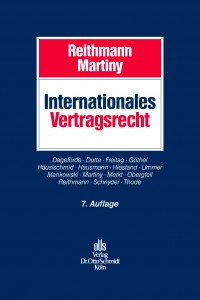18th International Congress of Comparative Law: Washington D.C.
On July 25 through August 1, 2010, the 18th International Congress of Comparative Law will be held at the Ritz-Carlton Hotel in Washington D.C. Sponsored by the International Academy of Comparative Law and the American Society of Comparative Law, it will be jointly hosted by American University Washington College of Law, George Washington University Law School and Georgetown Law Center. The topics of this year’s Congress include:
I. A. Legal history and ethnology
Legal culture and legal transplants
I. B. General legal theory
Religion and the secular state
I. C. Comparative law and unification of laws
Complexity of transnational sources
I. D. Legal education
The role of practice in legal education
II. A. Civil law
Catastrophic damages-liability and insurance
Surrogate motherhood
Same-sex marriages
II. B. Private international law
Consumer protection in international transactions
Recent private international law codifications
II. C. Civil procedure
Cost and fee allocation rules
Collective actions
II. D. Agrarian and environmental law
Climate change and the law
III. A. Commercial law
The regulation of private equity, hedge funds and state funds
Harmonization of finance leases by UNIDROIT
Corporate governance
Insurance contract law between business law and consumer protection
III. B. Intellectual property law
The balance of copyright in comparative perspective
Jurisdiction and applicable law in intellectual property
III. C. Labour law
The prohibition of discrimination in labour relations (age discrimination)
III. D. Air and maritime law
The law applicable on the continental shelf and in the exclusive economic zone
IV. A. Public international law
The protection of foreign investment
International law in domestic systems: a comparative approach
IV. B. Constitutional law
Foreign voters
Constitutional courts as “Positive Legislators”
IV. C. Public freedoms and human rights
Plurality of political opinions and the concentration of media
Are human rights universal and binding? Limits of universalism
IV. D. Administrative law
Public-private partnerships
IV. E. Tax law
Regulation of corporate tax avoidance
V. A. Penal law
Corporate criminal liability
V. B. Criminal procedure
The exclusionary rule
VI. Computers
Internet crimes
There will also be Special Sessions dedicated to law and development, torture and cultural relativism, comparative perspectives on the role of transparency in administration of law, protection of privacy from the media, comparative family law, comparative constitutional law, and comparative and international government procurement law. Sessions dedicated to regional studies will include a “Panel on Africa: Comparative Private Law and Transitional Social Justice,” a “Panel on Latin America: Comparative Legal Interpretation,” and a “Panel on the Middle East: Islamic Finance and Banking in Comparative Perspective.”
Registration information is available here, and a detailed agenda is available here. Note that early-bird registration ends on January 30. Updates to the agenda and schedule will follow on this site.
 Happy New Year to everybody. I have not posted in a while, but am now freed from the shackles of teaching (well, mostly) for this year, and so can devote myself to conflictoflaws.net once again (not, I’m sure, that anyone noticed my absence, given the dedication of my co-editors).
Happy New Year to everybody. I have not posted in a while, but am now freed from the shackles of teaching (well, mostly) for this year, and so can devote myself to conflictoflaws.net once again (not, I’m sure, that anyone noticed my absence, given the dedication of my co-editors). The
The 
